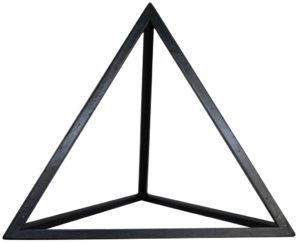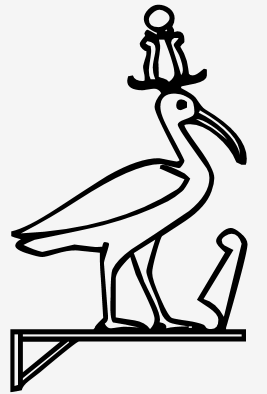Tetrad (τετράς) is the ancient Greek word for “four.” The ancient Pythagoreans considered the numbers 1-10 each to embody certain qualitative aspects (in addition to their quantitative function). Speculation on the qualities of the first ten numbers is sometimes called “arithmology” by modern scholars, in order to distinguish it from from the modern sense of “arithmetic.”
On the Tetrad (περὶ τετράδος):

The Theology of Arithmetic 20.2-12: “Everything in the universe turns out to be completed in the natural progression up to the tetrad, in general and in particular, as does everything numerical – in short, everything whatever its nature. The fact that the decad, which is carpenter’s square (γνώμων: 1743) and joiner (συνοχή: 1328), is consummated by the tetrad along with the numbers which precede it [i.e. 1 + 2 + 3 + 4 = 10], is special and particularly important for the harmony which completion brings; so is the fact that it provides the limit of corporeality and three-dimensionality. For the pyramid (πυραμίς), which is the minimal solid and the one which first appears, is obviously contained by a tetrad, either of angles or of faces, just as what is perceptible as a result of matter and form, which is a complete result in three dimensions, exists in four terms.”
Philo of Alexandria, On the Creation of the World 52.4-8: “The four elements (στοιχεῖα), out of which this universe was constructed, flowed forth, as from a source (πηγή), from the four in the realm of numbers. Moreover, the annual seasons which are responsible for the birth of animals and plants are four, the year having received a fourfold division into winter (χειμών), spring (ἔαρ), summer (θέρος), and autumn (μετόπωρον).”
Isopsephy of 4 (22):
- ἄγ (ag) – on, upon; up; up to; upwards (ἀνά before a guttural consonant)
- γα (ga) – Doric and Boeotian dialects for γε: at least, at any rate; namely, that is; yes
- γᾶ (ga) – earth, land, country, ground (variation of γῆ)
- δ’ (d’) – contraction before vowels of δέ: but; and
